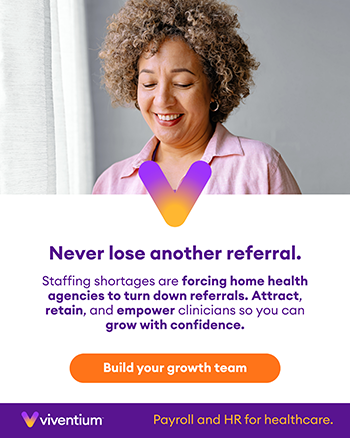Ensuring HIPAA Compliance in Healthcare Communication
Adminby Devin Paullin, CGO at Skyscape Buzz
Ensuring HIPAA Compliance
Communications Requiring HIPAA Compliance
While patient communication requires HIPAA adherence, so does any discussion between other parties. Essentially, any time PHI is discussed, a degree of confidentiality must be involved. For example, the Health Insurance Portability and Accountability Act (HIPAA) requires that sensitive patient data be protected when shared or discussed among:
- Healthcare Providers and Patients
- Any time a caregiver, staff member, doctor, nurse, or any other employee communicates with a patient, resident, or client, outside of face-to-face meetings, it must be done securely in a way that meets HIPAA standards.
- Healthcare Professionals Among Themselves
- HIPAA compliance must be met when healthcare professionals discuss PHI within their department or collaborate with external departments.
- Healthcare Providers and Insurance Companies
- Insurance providers require patient details and sensitive PHI. Still, anything that makes information vulnerable to interception must be fully compliant with HIPAA standards.
- Healthcare Organizations and Third-Party Associates
- Third parties that need to handle PHI (e.g., IT consultants, collections agencies, or other vendors) must do so in a way that protects patient data. To safeguard communication, healthcare organizations should ask outside associates, vendors, or agencies to sign a business associate agreement (BAA) and/or Data Processing Agreement (DPA). This is a formal agreement to comply with HIPAA standards and ensure accountability.
- Healthcare Organizations and Public Health Authorities
- Some diseases or conditions require healthcare professionals to report to public health authorities (e.g. COVID-19 information during the pandemic). This communication requires stringent security measures and protection of PHI.
Why HIPAA Compliance Matters
In healthcare, effective communication is essential for providing high-quality care. However, without HIPAA compliance, the risk of data breaches increases. Implementing secure, HIPAA-compliant communication systems ensures the protection of Personal Health Information (PHI) while improving overall operational efficiency.
Key Benefits of HIPAA-Compliant Communication
- Protects Patient Privacy and Data Security
- HIPAA-compliant platforms use advanced encryption and access controls to prevent unauthorized access. This protects patient information, including medical histories, diagnoses, and test results.
- Enhances Communication Efficiency
- Secure messaging platforms streamline communication between patients, caregivers, and healthcare providers. These tools eliminate inefficient methods like phone calls and ensure real-time communication.
- Strengthens Collaborative Care
- Providing high-quality healthcare often involves a team of professionals working together. Whether it is a hospital placing a patient in rehabilitation or home care, coordinating with intake team, care team and providers,collaboration is key. HIPAA-compliant communication tools allow these professionals to securely share critical patient information, ensuring everyone has the details they need to deliver cohesive, well-informed care.
- Reduces Legal and Financial Risks
- Compliance with HIPAA regulations minimizes the risk of violations, protecting organizations from hefty fines and legal repercussions.
- Maintains Patient Trust
- Patients are more likely to engage openly with healthcare providers when they feel confident that their sensitive information is protected.
How to Ensure HIPAA Compliance in Communication
To comply with HIPAA regulations, healthcare organizations should adopt the following secure communication methods:
- Encrypted Emails
- Ensure emails containing PHI are encrypted and, in some cases, require patient consent.
- Secure Messaging Platforms
- Use platforms specifically designed for HIPAA compliance for text-based communication.
- HIPAA-Compliant Voice Calls and Telehealth
- Ensure voice and video communication channels are encrypted and secure.
- Patient Portals
- Provide secure portals with two-factor authentication for patients to access their medical information.
- Secure File Sharing
- Use encrypted systems for sharing patient documents and medical records.
Implementing HIPAA-Compliant Communication Platforms
Adopting a HIPAA-compliant communication platform requires a thorough evaluation of existing systems and policies. Organizations should consider the following steps:
- Conduct a Communication Audit
- Identify all channels currently used for healthcare communication and assess their compliance.
- Choose a Secure Platform
- Select an all-in-one communication solution designed to meet HIPAA standards.
- Establish Access Controls
- Implement role-based access to ensure only authorized personnel can view PHI.
- Provide Staff Training
- Educate employees on the importance of HIPAA compliance and how to use secure communication tools.
- Monitor and Evaluate
- Regularly assess communication practices to identify and address vulnerabilities.
Final Thoughts
HIPAA-compliant communication is not just a legal obligation—it’s a commitment to patient privacy, security, and high-quality care. By implementing secure communication platforms, healthcare organizations can enhance efficiency, foster trust, and reduce the risk of data breaches. Investing in compliance is an investment in the long-term success and reputation of your organization.
# # #


Devin Paullin is an award-winning innovator and executive in Healthcare Technology, having developed successful products, solutions, and partnerships in Life Sciences, Post-Acute Care, SDOH, and Long-Term industries.
He is currently Chief Growth Officer for Skyscape which provides Buzz, an all-in-one, real-time HIPAA-compliant clinical collaboration and communication platform that enables the entire staff (admins, operations, clinicians, caregivers, partners, patients, and families) with the tools to communicate securely, easily, in groups or one to one, and affordable, by any mode they choose. Visit Buzz or contact them to learn more about Buzz by Skyscape today.
©2024 by The Rowan Report, Peoria, AZ. All rights reserved. This article originally appeared in Healthcare at Home: The Rowan Report. One copy may be printed for personal use: further reproduction by permission only. editor@therowanreport.com




